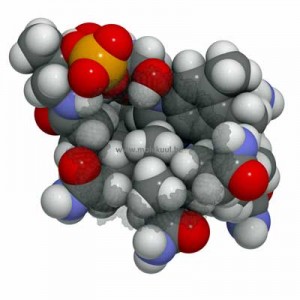



“Over the past fifteen years I’ve spent thousands of dollars on supplements, most of which had absolutely no effect on my symptoms.” Dr. Courtney Craig – Youtube video
To take or not take supplements is a big question in disorders like Chronic Fatigue Syndrome and Fibromyalgia where the list of FDA approved drugs is short (or non-existent) and not particularly impressive.
Where there are no drugs, though, there are always supplements – each purporting to be helpful – each suggesting it might provide the critical nutrient you need to turn your health around. Hope springs eternal with supplements and maybe it should. The supplement field – encompassing herbs, vitamins, minerals, neutraceuticals, probiotics, medical foods, etc. is enormous. With thousands of combinations available and new possibilities coming out regularly, supplements can potentially make a major impact on our health.
The very size of the field, though, makes the challenge of picking the right supplements and using them correctly a daunting one. It’s an area you can very quickly dump a lot of money into without results.
In this first part of a two-part blog we check out some of the supplement mistakes we all may have made in Dr. Courtney Craig’s video, “The Top Five Supplement Mistakes and How to Avoid Them”.
Then we talk further with Dr. Craig in order to flesh out the features of a effective supplement program.
Top Five Supplement Mistakes and How to Avoid Them by Dr. Courtney Craig
In this video Dr. Craig, a recovered ME/CFS patient, examines how to choose supplements that work, mistakes people make when taking supplements, and how to streamline your supplement regimen to save you money.
First she refers to an ebook by Dr. Charles Lapp and Dr. Bruce Shepherd that proposes that supplements for ME/CFS should meet three criteria before they recommend their general use by the ME/CFS population:
- It must be safe.
- There must be a scientific basis for its effects.
- It must cause a positive effect in at least fifty percent of those who take it.
Mistake #1 – You don’t need to take supplements if you eat a healthy diet
Soil depletion and other factors make it impossible to know if diet alone meets our nutrient needs. More importantly, perhaps, Dr. Craig asserts that the demands placed on the body by high levels of oxidative stress plus the immune system alterations and energy depletion found in ME/CFS suggests that supplementation is going to be needed.
Finally, with no FDA approved drugs available, Dr. Craig proposes that a smart evidence-based use of supplements may be the best way ME/CFS patients have of improving their symptoms.
The research on the need for supplements in Chronic Fatigue Syndrome is sparse, but what is there suggests supplementation can help.
Several studies have found, for instance, low levels of B-vitamins in ME/CFS patients. A 1999 study found low blood levels of vitamins B-1 and B-6. A 2014 study found that giving ME/CFS patients a multivitamin/multimineral supplement for two months resulted in an increase in antioxidant status (SOD) as well as significant reductions in fatigue, flu-like symptoms, sleep problems, autonomic nervous system symptoms, and headaches.
Mistake # 2 – All Supplements Are Created Equal – Brand Doesn’t Matter
Because the FDA does not regulate the supplement industry, supplement companies release products without federal oversight and unknown quality control. Independent testing to ensure that each supplement has the ingredients listed on its label is not required. Dr. Craig only uses supplements that carry one of three labels on the bottle that indicate it has passed a test by an independent agent that ensures the facilities that produce the supplement are adequate and/or that their supplements are pure and potent.
- Good Manufacturing Practices (GMP)
- NSF – National Sanitation Foundation
- USP – indicates the supplement is of pharmaceutical grade
Dr. Craig also states that, with little way to know how long they’ve been on the shelves, store-bought vitamins may have questionable potency.
She also suggests being on the lookout for fillers (including wheat gluten (!), cornstarch, eggs, nuts, dairy, shellfish and dyes) which companies sometimes add to supplements to increase their shelf-life and improve their presentation. These additives can cause problems for some individuals. If you have an allergy and are not sure what is in a particular product, contact the company.
Mistake #3 A Vitamin is a Vitamin is a Vitamin or the Right Vitamin, Wrong Form Problem
Vitamins come in many forms, some of which may not be particularly effective for you.
B-12
B-12, for instance, is usually either given sublingually or via injection in ME/CFS. It comes in four radically different forms: methylcobalamin, cyanocobalamin, hydroxycobalamin, and adenyosylcobalamin.
- Methylcobalamin – plays a role in the methylation cycle.
- Cyanocobalamin – is the most commonly found version of B-12 because it is the least expensive to produce, but it breaks down in the body to cobalamin and cyanide.
- Hydroxycobalamin – is believed to be useful for brain health.
- Adenosylcobalamin – is the least commonly found form of B-12,.adenosylcobalamin may be able to scavenge hydrogen disulfide, a byproduct of bacterial overgrowth in the small intestine (SIBO) – something commonly found in ME/CFS.
Co-enzyme Q10 (CoQ10)
CoQ10 is a potent antioxidant that plays an important role in producing ATP. [CoQ10 is one of the few supplements endorsed by virtually all ME/CFS practitioners]. It comes in two forms: ubiquinone or ubiquinol.
- Ubiquinone – is the oxidized form of CoQ10. The body has to transform ubiquinone back into its unoxidized form to use it.
- Ubiquinol – is CoQ10 In its biologically active ready-to-use form.
Folate
Folic acid, whether found in grain products or vitamins, has to be converted first into DHF and then into THF and then into 5-methyl THF before it’s ready to be used by the body. No less than three enzymes are needed to transform folic acid into its biologically usable form. A large portion of the population has genetic alterations to one or more of these enzymes that may inhibit this process, thus reducing the amount of folate available to the body.
That’s only the beginning of the problem, though. It turns out that unmetabolized folic acid has been implicated in the development of some cancers.
The take-home lesson is to always take active forms of vitamins in order to bypass potential problems in metabolizing them.
Mistake #4: Not believing that it matters when or how you take your supplements
Bioavailability refers to how likely the nutrient you take is going to be taken up by the body and be put to use. Several factors can affect it.
Taking nutrients on an empty or full stomach? Fragile nutrients that end up getting digested during a meal should be taken on an empty stomach. Probiotics and n-acetyl-cysteine (NAC), for instance, should always be taken on an empty stomach. NAC, in particular, is not cheap; i.e., it is not something you want to waste.
Foods – grains contain factors called phytates which act like a magnet to bind minerals before they can be absorbed. Taking a magnesium supplement with a phytate-rich meal will stop virtually all of the magnesium from being absorbed. Dr. Craig recommends taking mineral supplements on an empty stomach to ensure absorption.
Coffee and Tea – contain factors called tannins that also bind to minerals making them less bioavailable. In the presence of coffee, creatine absorption is also almost completely stopped.
More absorbable forms of supplements are continuing to be developed. Vitamin D, for instance, is poorly absorbed as a tablet, but is readily absorbed when emulsified as an oil.
Mistake #5 – Taking individual nutrients one at a time to see which one has an effect
Taking supplements one at a time to determine which ones work is often recommended, but Dr. Craig thinks differently. For one, taking single nutrients – i.e. pills that contain only one nutrient – can lead to a lot of pill taking, which is an expensive and rather complicated task. Dr. Craig reported she was taking 30-40 pills a day at one time.
Since ME/CFS is far too complex a disorder for one nutrient to have a major effect anyway, Dr. Craig recommends taking nutrients found in formulations that can provide synergistic effects. She pointed to an immune formulation called Immunitone that contains four different kinds of mushrooms and seven different herbs. You can either take tyrosine to support your adrenal glands or you can take an adrenal support supplement such as Adrenal Stress-End that contains all the adrenal support factors (tyrosine, licorice, vitamins, and adrenal factors).
Finally Dr. Craig noted that the supplements found on the online dispensary on her website fit the parameters for quality, synergism, and effectiveness outlined in this talk.
- Part II of Supplements and ME/CFS and FM: I’ve avoided supplements for years. In the second blog I explain why, lay out my criteria for engaging in a full-bore supplement program, and explore using supplements to combat ME/CFS further with Dr. Craig.
______________________________
Dr. Courtney Craig D.C. was first diagnosed with CFS as a teen in 1998, and recovered in 2010 utilizing both conventional and integrative medicine.
Trained as a doctor of chiropractic and nutritionist, she now provides nutrition consulting and blogs about what she’s learned at www.drCourtneyCraig.com/blog.
- Check out Dr. Craig’s Health Rising blogs here











Fabulous article Cort. TY for all your collaborate efforts to make sure patients get the right information.
Thank you Dr. Craig, for this information. I have been supplementing for over two years now to aid in relieving my Fibromyalgia symptoms. It is very challenging to try to manage everyday normal activities and to keep working while dealing with Chronic Pain and fatigue. Is there a specific test that can be performed to verify CFS? Knowing what tests and labs to ask for really help too. Recently I asked my PCP to check my Vit B12 and Vit D levels. I found out that my Vit B12 was off the charts and Vit D level was very low and I was anemic. Could the steroid shots that I had been receiving from my Rheumatologist be causing these levels to vary so? Since that report, I have decreased my Vit B12 supplement and take prescriptive Vit D. Is there a website or book I can use as a reference to help with supplements and prescriptions?
Again, thank you so much for sharing such valuable information.
~Corrine
Glad to hear Corrine! I’d make sure your PCP ordered the most accurate form of B12 which is methylmalonic acid (MMA). I will mention a bit more about testing in Part II of this post.
MMA (methylmalonic acid) is the result which shows up in a test. It is not a form of Vitamin B-12. Am assuming Craig intended to reference the test and not suggest it was vitamin?
My B12 was off the charts high also. I was told by my FM doc that it was because my body was not utilizing B12, thus the high (unused) levels. It is because of MTHFR mutation. She recommended methyl cobalamin.
Yes, my dr. — molecular medicine specialist – also recommended methy cobalamin. I understand it is more bio available.
My wife had the same problem: B12 off chart and D3 too low. Excess B12 doesn’t’ mean your body is unable to use it . B12 is synthesised by bacteria in the gut so it is more likely that excess B12 is the result of a dysbiosis. You should first rebalance the bacteria in the gut by taking probiotics and/or fermented food. Too much B12 might displace some other useful vitamins . My wife is taking daily 5000UI of vit D3. You might choose to take also a mix of magnesium (500mg elemental Mg per day)It may rebalance the production of serotonin and norepinephrine and also help relax smooth muscles. I suggest you to visit the following site : http://www.lef.org
Off the charts B12 is also a feature of certain hematological cancers, as well as liver issues. My pcp and I assumed my out of range B12 was due to supplementation. It wasn’t. I had blood cancer.
Not trying to be alarmist, but this was something that I’d never considered. It was only discovered in lab work when I asked for a referral to an endocrinologist for what I thought was abnormal but the pcp didn’t. I turned out to be right. (And I’m not casting shade on my pcp. He honored my referral request.)
This is great information. I highly recommend you do extensive research on the supplements before you purchase. Seek Non GMO Verified labels on the supplements and prior to purchasing supplement find their website or phone number and ask them for a copy of any and all testing they have done on their products. You want a pesticide and herbicide free supplement. You also want a supplement that is free of heavy metals. Pay close attention to the “inert” or “other” ingredients as they may contain gluten and soy which those of us with inflammation need to avoid.
great article, especially interested in vitamin D as an oil as I know it’s an important supplement for me. I’ve also found NAC to be vital.
However – magnesium frequently causes diarrhoea so anyone taking that as a supplement needs to be very careful what formulation they are using. Magnesium has some research suggesting it helps pain (not in ME patients but if there is a scientific basis in other patients that is also important) and it’s readily absorbed through the skin. For many patients with ME magnesium sulphate baths or magnesium oil spray can help when oral magnesium cannot be tolerated.
In the UK everyone tries supplements because we don’t have access to much else!
The supplements that have been the most helpful for my cocktail of symptoms are magnesium citrate, Zylfamend for inflammation, and Thrive by Le-Vel (multiple vitamins, minerals, herbs) for overall energy. I’m unable to take pharma meds for my CFS, so I feel blessed that I’ve seen some drastic improvement using these three things on a daily basis.
Supplementation is very challenging with our Genetic Variations / defects. Probiotics worsened my Histamine Intolerance and it seems only specific types are useful ehen we have a histamine or other food intolerances.
I know I am gluten intolerant, dairy, soy, corn allergies as well and now recognize the histamine intolerance, even eati g beco es very tricky. And, now to fi d someone to work with is near impossible, I have wasted so much mo ey seeing people who claim to know how to approach this and point to gut dybiosis and malabsorption and want to throw tons of supplements at me, it so far has not been helpful and causes more problems. I try to eat a healthy diet and take so e B vitamins, I cannot yet tolerate the methyl B 12 and folate and the prescription probiotic that is deemed the best that I have taken foe a long time is not compatible with a histamine Intolerance……it becomes overwhelming to figure this out. And, then a functional medicine doctor wants $500 for a first visit, will they even know what I know, doubtful.
For me, constant supplementation probably is not a good idea. I do use mg, the others are sitting there because I don’t want more adverse reactions. I already react to food ! This is not easy. So much money wasted on nutritionists, doctors, supplements, I need a break -:)
Some one asked this in an email
“I just read your article on “Don’t make these 5 supplements mistakes. Realize that many of us (including me) need to change the type of injectable B-12. Where can we get Adenosylcobalamin injectable B-12????????? My compounding pharmacy in Raleigh only carries cyanocobalamin.
Thanks!!!!!”
I want to mention that if anyone needs Information on Histamine Intolerance and Mast Cell Activation Syndrome to check out the low histamine chef blog, http://www.lowhistaminechef.com, for recipes and supplements that may help. Some studies have found mast cell disorder relates to fibromyalgia.
I was not familiar with Histamine Intolerance but I realize I have had the symptoms for years…….spinach, tomatoes, chocolate, cauliflower, etc.
Oxalates and salicylates are other problems for me. And, I always loved food ! Still do but now there are fewer options.
Hi Dr Craig,
Thankyou so much for the great information. l am currently trying out some of these core vitamins at the moment but what do you think about Vit A as l am finding it to be very beneficial in my ability to also take more vit D. l also find it unusual that Vit A seems to be left out of the picture of overall health and yet it plays such an important role. Also there was a study done in 2008 in Japan regarding Vit A and sleep. It is also really interesting that Vit A needs magnesium and that ME/CFS patients seem to not be able to absorb magnesium very well. Thankyou Cort 🙂
Hi I also find this information interesting buy I have low bz12 and get injections every 3 months and I’m vitamin D and calcium deficient. Not sure if this is all connected. I wish That there was something that I could take for all the symptoms. As a previous person said the cocktail of pills I take is a nightmare.
Do magnesium supplements work for anyone with fibromyalgia?
Personally I have found the Magnesium to help the anxiety and I’ve calmed down a little. I take a magnesium powder and it’s from an extremely trusted company. The powder comes in raspberry or orange and it’s mixed in to some water. I also take Eskimo fish oils and a Vitamin D oil. Since taking these 3 I have managed to take 1-2 less Tramadol a day and I know that it is due to having supplementation. The company I order my tablets etc from have a team of nutritional therapists of which you can book a ten minute phone call. I speak to the same therapist when I book mine and she has been a tremendous help!
Not everything works for everyone but luckily I’ve found some benefit.
Hope this helps.
Do magnesium supplements help with fibromyalgia?
If so, what dose.
Hey, I’m Dean Rosenberg age 72. Diagnosed 7 months with cfs, Lyme , nutritional assimilation issues, candida and environmental pesticides. On my 3rd holistic md. I’m a retired chiropractor. Fatigue for past 25 years, worsening last 5. No cardiac issues. No alcohol or street drugs. Hydrated, no Covid vaccine. No joint pain. Fatigue. Take 7 meds daily. Serroquel for sleep 3 meds hbp. 155/82. Unable to feel 5 percent better. Only help was red light therapy help for 2 days. Utilizing chiropractic, acupuncture, holistic medicine supplements many, not an adrenal issue. I have tons of blood work. Tick mite long ago. Cortisol negative. Psychiatric care unhelpful.
Doc, I’m at my wits end. Don’t see light at tunnel. Husband father brother. Please please call me ASAP.